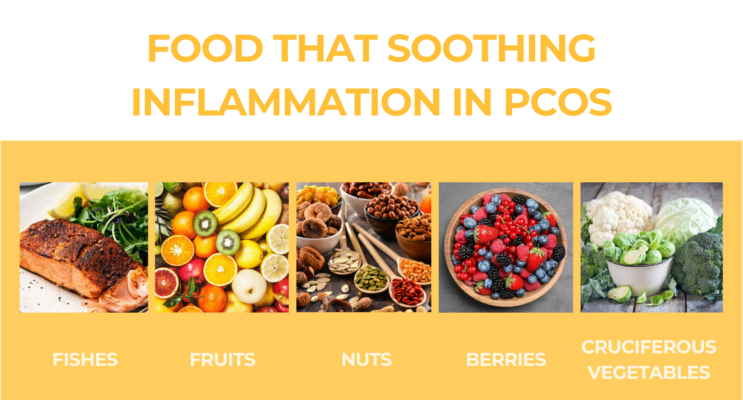What is PCOS?
Polycystic Ovary Syndrome (PCOS) is a common hormonal disorder that affects women typically in their 20s and 30s, characterized by irregular menstrual cycles, elevated androgen levels, and ovarian cysts. While the exact cause of PCOS is not fully understood, it is believed to result from a combination of genetic and environmental factors. Despite its complexity, research indicates that diet and nutrition play a pivotal role in managing PCOS symptoms and enhancing overall well-being. In this article, we explore evidence-based strategies to help women navigate this condition and improve their quality of life by addressing the intricate relationship between diet, nutrition, and PCOS.
Understand hormone imbalance in PCOS
Hormone imbalance is the core of the PCOS. Insulin resistance, a common feature, leads to high insulin levels and metabolic disturbances. High androgens such as testosterone will disrupt ovarian function, causing symptoms like acnes, hirsutism, and weight gain especially in the abdomen. Additionally, imbalances in reproductive hormones like LH and FSH affect ovulation and menstruation regularity. Understanding these hormonal complexities is crucial for tailoring a customised and effective dietary and lifestyle strategies to restore life and decrease PCOS symptoms.
Nutritional Strategies for PCOS
Proper meal and nutritional support are vital for managing PCOS effectively. A balanced diet rich in whole grains, fruits, vegetables, lean proteins, and low-fat dairy helps to regulate insulin levels, stabilize blood sugar level, and improve insulin sensitivity. .n addition, nutrients such as omega-3 fatty acids, magnesium, and Vitamin D aid in reducing inflammation in PCOS.
Meal planning can effectively manage PCOS and stabilize insulin levels. By spacing meals evenly, approximately 4-6 hours apart, it helps to regulate appetite and prevent overeating. Aim for 3 balanced meals which includes fibre and protein and 2-3 snacks per day in between main meals, it promotes fullness and prevent blood sugar spikes. Besides, staying hydrated is crucial. It’s also important to consult dietitians for personalized advice.
Daily Habits to support PCOS well-being
Incorporating practical tips into daily routines supports overall health and well-being for women with PCOS. Engaging in regular physical activity, aiming for 150 minutes of moderate-intensity exercise weekly will promotes muscles mass and metabolic health. Cardio workout and resistance training are both good to maintain healthy metabolism, examples are cycling, swimming, and weight lifting.
Stress management techniques like yoga and meditation reduce stress and cortisol levels, promote balanced metabolism. Prioritize 7-9 hours of quality sleep nightly helps in hormone balancing too. Limit exposure to environmental toxins like pesticides and certain plastics will prevent hormone being disrupted. Seek support from healthcare professionals and online communities for guidance and encouragement in effectively managing PCOS.
Conclusion
PCOS is a complex hormonal disorder negatively impacting women health not only on fertility, but also metabolic health. It’s challenging to manage PCOS without addressing hormonal imbalance aspect. Balanced meal plans, routine exercise, and stress management balance hormone levels and improve overall health. Seeking support from healthcare professional experienced in hormonal therapy if at doubt.


